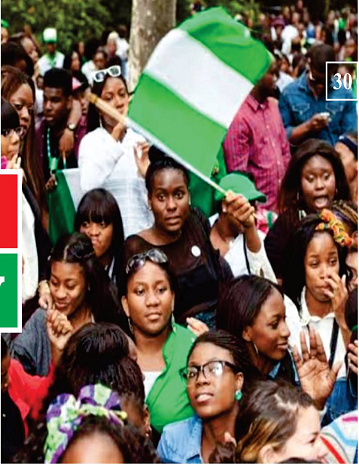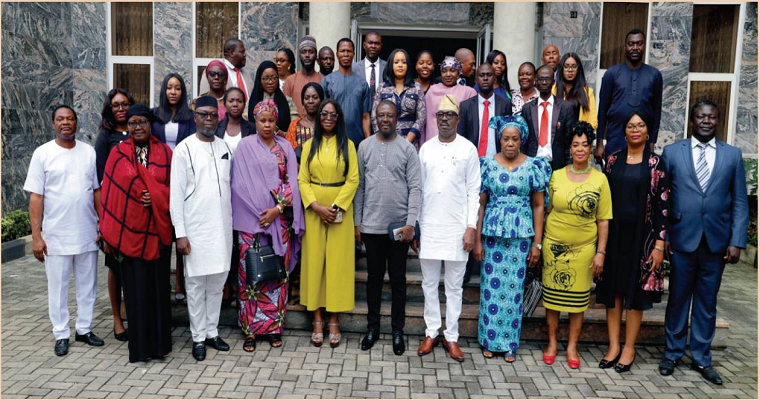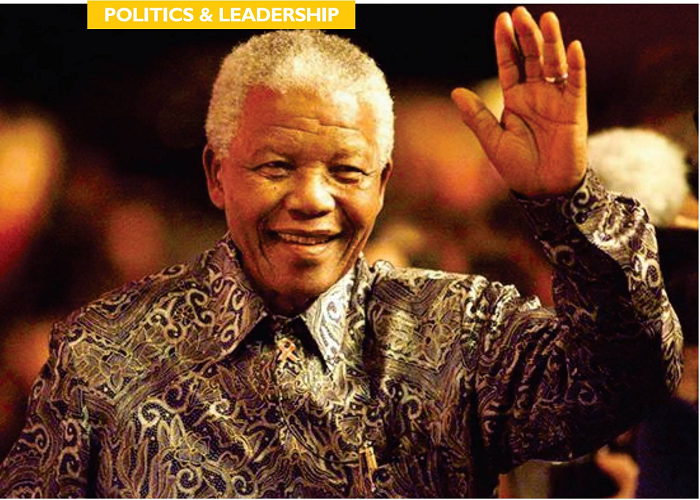By Taiwo Lawrence Adeyemi
We live in an era where democracy is increasingly challenged, and more and more countries are referred to as competitive or electorally authoritarian. Africa is surely no exception in this rather bizarre narrative; and while multiparty elections are still commonplace, they are increasingly, neither free nor fair.
Yet, not all unfair elections are equally delivered, and a closer look across the African continent reveals a range of manipulative practices. Some regimes regularly use more drastic forms of election meddling like stuffing of ballot boxes or arresting political opponents. But, others resort to less obvious subversion of the democratic process and nonetheless emerge victorious.
Dictators in sub-Saharan Africa, like former Zaire strongman Mobutu Sese Seko, Omar Bongo of Gabon, Yoweri Museveni of Uganda, Theodore Mbasogo of Equatorial Guinea and Faure Eyadema of Togo exhibit the tendency to hold onto power by keeping senior ministers in check and manipulating ethnic divisions.
Thus, many dictators in postcolonial sub-Saharan Africa, cling to power by invariably, exploiting ethnic differences and manipulating the electoral process. Often, these dictators continuously shuffle their cabinets to prevent experienced ministers from establishing their own political power bases, which could give them the clout to either launch a coup or mastermind an ouster by way of elections..
Rather than ethnic disputes leading to political dysfunction, there is instead a great deal of ethnic considerations and inclusion in African cabinets at the elite level. However, rather herald progressive entreaties, ethnic politics would be seen to be playing a more insidious role in the African society, generally.
The elite of all ethnicity are, often generally present at the table to negotiate their stakes.
But then they usually attempt to solidify their power by maintaining ethnic rivalries and allocating the perks of office within their own groups. “Such rivalries ensure that non-elites from an ethnic group will not support other political leaders, nor will they demand public goods or services that would benefit all citizens.”
READ MORE: Morocco Enters the Drone Manufacturers Club with Help of Israel
East and South African countries, once described as an unrepentant hub of dictators have gradually begun to witness a turn-around to see these regions becoming a political hope of Africa and an Aurora Borealis. North Africa was also on a steady rise in improving their democratic governance with elections in Algeria, Tunisia and Mauritius. However, the recent political turmoil in Tunisia has pitted President Kais Saied against the country’s political class, especially with the country’s Prime Minister, Hichem Mechichi and parliamentary speaker, Ghannouchi’s declaration of a state of emergency due to economic crisis and the COVID-19 pandemic.
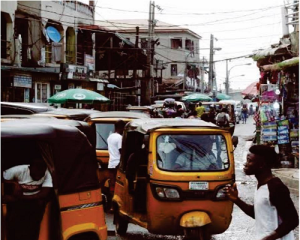
East Africa with Kenya, Ethiopia, Rwanda, and Tanzania are blazing the trail with Nobel Peace Prize, being Africa’s fastest growing economy and the most branded countries in the continent. Kenya’s William Samoei Ruto, Tanzania’s Sarnia Suluhu Hassan, Zambia’s Hakainde Hichilema and Burundi’s Evariste Ndayishimiye have become their country’s democratic presidents.
The South African region had a peaceful election transition in Botswana, Mozambique, South Africa; but the recent political turmoil that engulfed the ‘rainbow nation’ has cost the country an estimated 50 billion rand [$3.4 billion) loss in the economy; with at least 40,000 business premises looted in KwaZulu- Natal and Gauteng provinces and claiming over 215 lives though it remains the continent’s second strongest economy along with Zambia, Malawi and Namibia.
Once Africa’s political bride, West Africa has now transformed itself into the region that parades a bastion of dictators. The political narratives in Benin, Togo, Guinea, Ivory Coast, Guinea Bissau, Gambia, Chad and by extension, Nigeria’s has continued to rattle the continent.
In Benin the political crisis between President Patrice Talon and his predecessor Boni Yayi was up-scaled with Boni Yayi fleeing the country for personal safety. Benin has been in chaos after President Patrice Talon placed his predecessor Boni Yayi under house arrest due to Benin’s chaotic parliamentary elections that took place in April. Benin’s political landscape has, thus, remained restive with many pro-democracy activists, journalists and opposition activists being jailed on trumped-up charges.
In Guinea, 81 year-old President Alpha Conde who came to power in December 2010, with constitutional amendments, ran for a third term in office in 2021 when his second term in office expired in 2020.
Guinea has since been under intense political upheavals in the run-up to the election as thousands continue to march through the streets of Conakry in defiance of government order, with several arrests which include opposition leaders, civil society groups and organized unions.
Eventually, in September 2021, Colonel Mamardy Doumboya toppled President Alpha Conde in a military coup d’etat.
Ivory Coast President, Alassane Quattara, has amended his country’s constitution to enable him run for a third term. President Alassane Ouattara changed his country’s constitution in 2016 so that will enable him stand for a third-term in office.
In a twist of action, Alassane Quattara who once signified his intention not to run for a third term later reconsidered his stance, after much pressure from France, and ran for a third term and won the election that was widely perceived to be neither free nor fair.
It took the strong will of ECOWAS leaders to threaten the former Ivorian president with the use of military force to remove President Laurent Gbagbo after successfully installing himself as president when the former military head of state Robert Guei fled following massive street protests.
The 2017 to 2018 Togolese protests are a significant representation of civil unrest in Togo and against the 50-year rule of the father-son combination of Gnassingbe Eyadema and Faure Gnassingbe. The protesters demanded that the president honor the 1992 constitution, and demanding that he step down immediately.
Togo political landscape now seems to be messier as Togolese living in Nigeria took to the streets in Lagos in July and December to demand the end of the reign of Togolese ‘Majesty’ President Faure Gnassingbe’s 4th term [and who is expected to stay in power until
2030 with the new constitution amendment]. Togolese went to the polls on Saturday, February 22, 2020 and Faure Gnassingbe Eyadema was re-elected for a fourth term in office amidst election fraud protests.
Chad reinstituted presidential term limits in 2019. But they would still allow President Idriss Deby to sit in power until 2033 when he would have been 81 and will have been in power for 43 years. [Idris Derby was later killed in a duel with insurgents],.
Idris Derby died on April 20th, 2021 from injuries he sustained at the war front against some rebels.
The political landscape in Gambia also took a new dimension with Adama Barrow forming a new political party, the National People’s Party. And there have since been widespread demonstrations across Banjul by protesting Gambians. Protesters were urging Adama Barrow to uphold his pledge to rule for only three years and not seek re-election. On the demonstrators part, Three Years Jotna’ [Three Years Is Enough].
Adama Barrow had risen on the back of coalition parties to defeat the country’s autocrat and dictator, Yahya Jammeh in the hotly contested December 2016 election that saw him, Barrow, emerge victorious. Adama Barrow took oath of office in January 2017 in neighboring Senegal.
It took the intervention of African Union and the West Africa regional body, the Economic Community of West African states (ECOWAS) who threatened use of force to boot Yahya Jammeh out of office in December 2016. Yahya Jammeh ruled Gambia for 22 years and stole an estimated $362 million. Yahya Jammeh later fled to Equatorial Guinea in January 2017 where he has since been holed up.
French colonies in West Africa have become a sordid case of political disdain and they have continued to create political instability and chaos in the sub-region. Colonel Paul Henri Sandaogo Damba toppled President Roch Kabore on January 25th, 2022 in a military coup d’etat, while in Mali Asimi Goita staged a military coup d’etat in August, 2020.
The recent move for a West Africa unified currency, the ‘Eco’ planned to replae the age-long ‘CFA Franc’, in the ‘French Colonies of Africa’, is largely seen as a political and economic coup against Nigeria’s domineering economic clout. The backlash of Nigeria’s border closure which affected the entire West Africa regional economy must have been the driving force for the creation of ‘Eco’. Ghana has signified its intention to join the ‘Eco’ monetary union.
France has a standby 4,500 Operation Barkhane strong counter-insurgency troops in Mali, yet the spate of deadly attacks on citizens of the G5-Sahel countries has continued unabated and quite consequential.
In February this year, France announced the total withdrawal of its 2,200 military forces but they have remained with Operation Barkhane in Mali after more than nine years fighting the Jihadists insurgents. Operation Barkhane was initiated in 2013 by former French President Francois Hollande.
Political upheavals, terrorism, desertification, soil erosion and degradation, Sahara Desert encroachment, human deprivation [poverty], poor health care facilities and provisions, drought and instability have plaque; Benin, Togo, Guinea, Mali, Burkina Faso, Niger, Mauritania and Chad with no immediate or even intermediate end in sight. Thus, creating more security challenges and problems for the West African region. The region has, additionally, continued to painfully witness relentless extremist and jihadists attacks in recent times, with a high number of military and civilian casualties recorded, invariably.
Is there any strong message or warning signals going to these Francophone West Africa dictators and tyrants that have blindly failed to heed, disregards and listen to the voice of their own people? Sadly, there seems to be none for now.
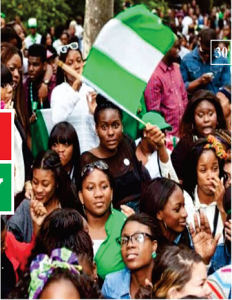
For instance, Charles Enya, a party chieftain and member of Nigeria’s All Progressive Congress (APC) in Ebonyi State and who also served as organizing secretary to President Muhammadu Buhari, during the 2019 general elections, approached a Federal High Court in Abakaliki, Ebonyi State to approve a change to Nigeria’s constitution to allow incumbent Nigerian President, Muhammadu Buhari, to run for a third term in office. This was given vent through a filed suit with number [FHC/AI/CS/90/19] brought before a Federal High Court in Abakaliki, the state capital.
Pitiably, Africa countries have been hit by an unending series of post-election crises and violence. The big question is; why is there always this otherwise, perennially unending disputes on the outcome of the election results in Africa?
In many instances, elections have been characterized by violence, retail corruption (vote-buying), ballot boxes snatching and stuffing, intimidation cum harassment, coercion and compromising of election results.
By and large, however, Africa’s thematic political narratives is changing and is being re-written.
We presently stand on the precipice in the wake of our characteristically shifting democracy and heavily tainted democratic practices. Hence the big question is: Will Africa ever get it right? What is the ‘Future’ of Africa’s political system vis-a-vis; constitutional democracy or anarchy? Shall we ever witness a time when there will be wilful acceptance of election results, characterised in the main by free and fair polls without a tendency by political leaders to hang on to power with the eventual institutionalization of good leadership? Your findings will be worth the effort.
Tai wo Lawrence Adey emi.
Research Assistant at Global Initiative against Transnational Organized Crime [GI-TOC] Pulitzer Centre on Crisis Reporting ‘Congo Basin Rainforest Journalism Fund'[RJF] Grantee

